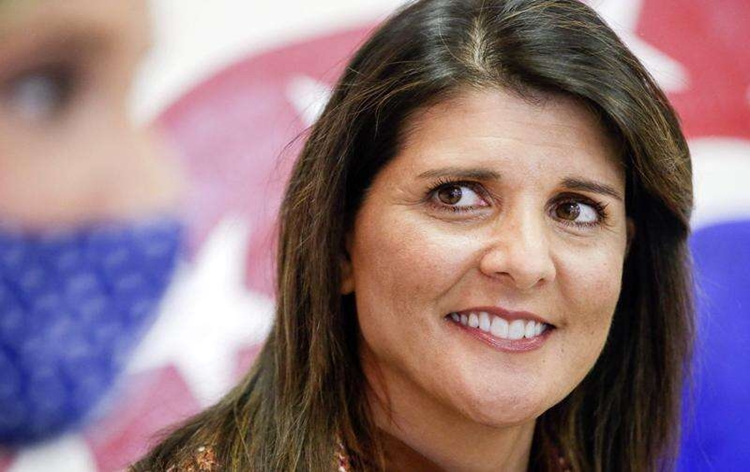Nikki Haley makes final New Hampshire push to slow Trump’s momentum

The state’s primary on Tuesday will essentially divide Republican voters into two factions: those aligned with former President Trump and those opposed to him.
In the final sprint towards the New Hampshire primary, Nikki Haley, the last Republican standing against Donald Trump, worked tirelessly on Monday to sway voters in her favor and secure an unexpected victory.
The state’s primary on Tuesday will essentially divide Republican voters into two factions: those aligned with former President Trump and those opposed to him. The competition turned into a head-to-head battle after Florida Governor Ron DeSantis bowed out of the race on Sunday and threw his support behind Trump.
Despite polls indicating a substantial lead for Trump over Haley, the former president aims to deal a decisive blow to her campaign by clinching another resounding victory, building on his record-setting win in Iowa. For Haley, New Hampshire represents a crucial opportunity to demonstrate that the Republican base might consider alternatives to Trump, who, despite facing 91 felony counts, maintains unwavering support, asserting that he is a victim of political persecution.
Addressing a packed veterans’ hall in a working-class town, Haley argued that Trump was entangled in personal vendettas and legal battles, keeping him from focusing on the future. She urged voters to decide between continuity with Trump or embracing something new.
In contrast, Trump, 77, held a single event in Laconia, joined by former Republican candidates Senator Tim Scott and entrepreneur Vivek Ramaswamy. He reiterated claims that his opponents were undermining democracy, highlighting the multiple criminal counts, some related to overturning the 2020 election results. Trump’s strong stance on preserving freedom garnered enthusiastic applause from his supporters.
New Hampshire’s primary, open to independent voters, may be more favorable to Haley than the conservative landscape of Iowa. However, Trump maintains a significant lead in most statewide polls. A recent Monmouth University poll showed Trump with 52% support, Haley with 34%, and DeSantis with 8%, though DeSantis supporters were more likely to choose Trump as their second choice.
The outcome on Tuesday may hinge on voter turnout and the ratio of Republicans to independents. Strategist Jim Merrill suggested that Haley’s chances rested on a significant number of Republican voters staying home, coupled with a substantial turnout of undeclared voters.
A victory for Haley could inject momentum and fundraising vigor into her campaign ahead of the South Carolina primary on February 24, her home state where she served two terms as governor. The ultimate winner of the Republican nominating contests will face off against the presumptive Democratic nominee, President Joe Biden, in the general election in November.
While Biden is not on the ballot in New Hampshire, a write-in campaign for him will be closely monitored amid his recent weak poll numbers. The White House denied any involvement after a fake audio robocall circulated, purportedly featuring Biden urging Democrats to stay home.
In a twist, Trump’s potential testimony in a New York courtroom for a defamation case brought by author E. Jean Carroll was postponed to Tuesday due to a juror’s illness and a COVID-19 positive test in the lead lawyer’s family. Trump, as with his criminal cases, framed the Carroll case as part of a broader conspiracy against him.
In the final days leading up to the primary, Haley escalated her criticism of Trump, citing concerns about his cognitive decline and his embrace of authoritarian foreign leaders. Trump responded by accusing Haley of relying on an “unholy alliance” against him, using her given first name, Nimarata, as an insult and amplifying false claims about her citizenship.
As the stage is set for the New Hampshire primary, the political landscape remains dynamic, with Haley striving to defy the odds and reshape the narrative within the Republican Party.









